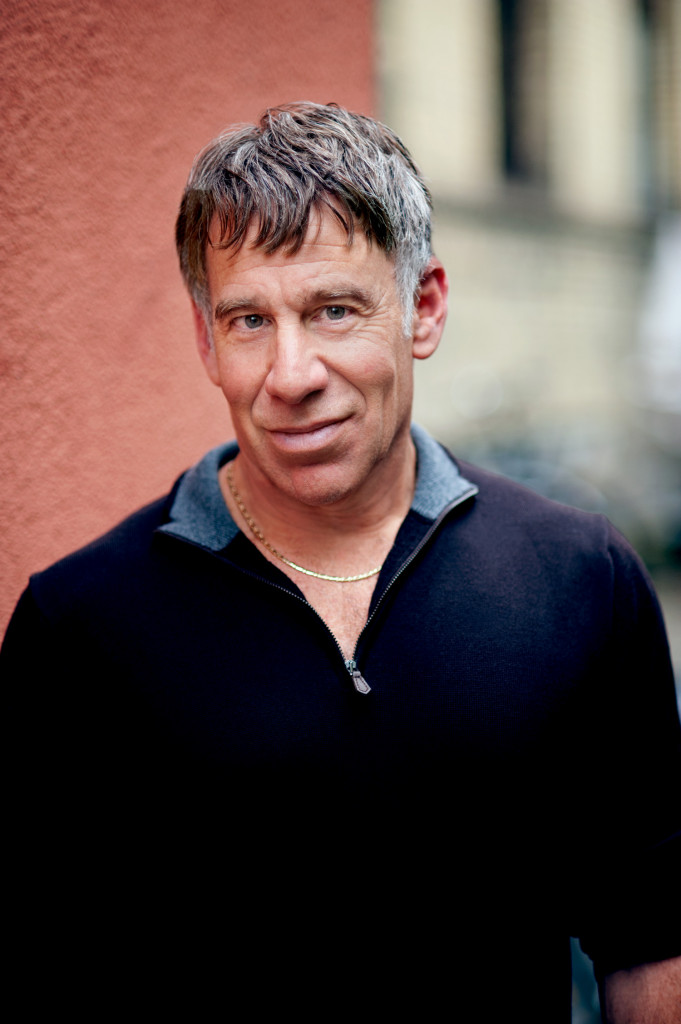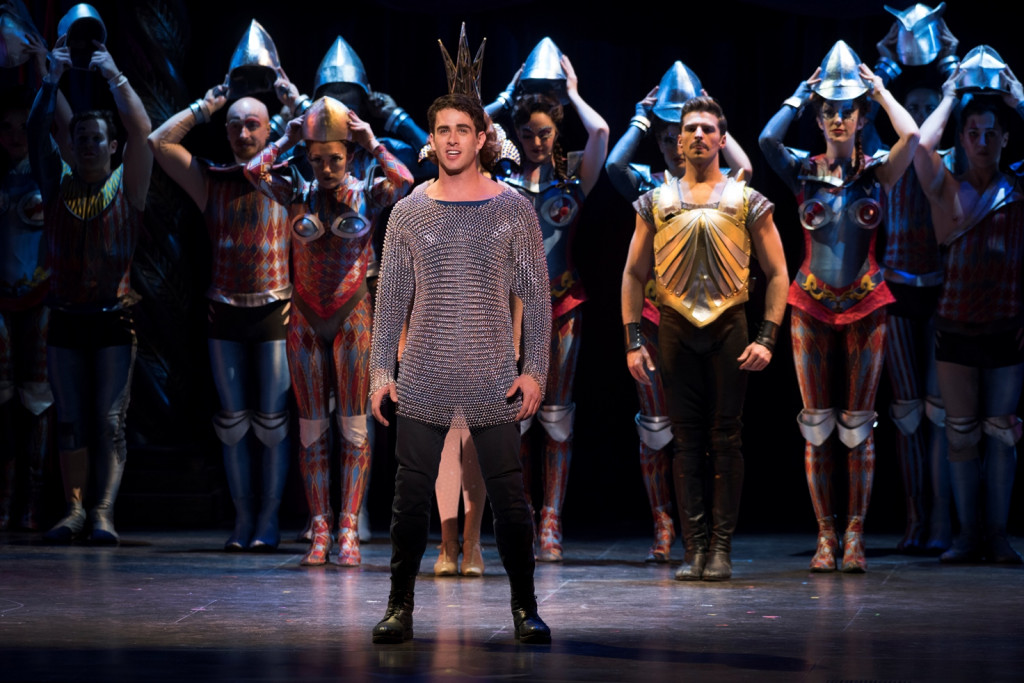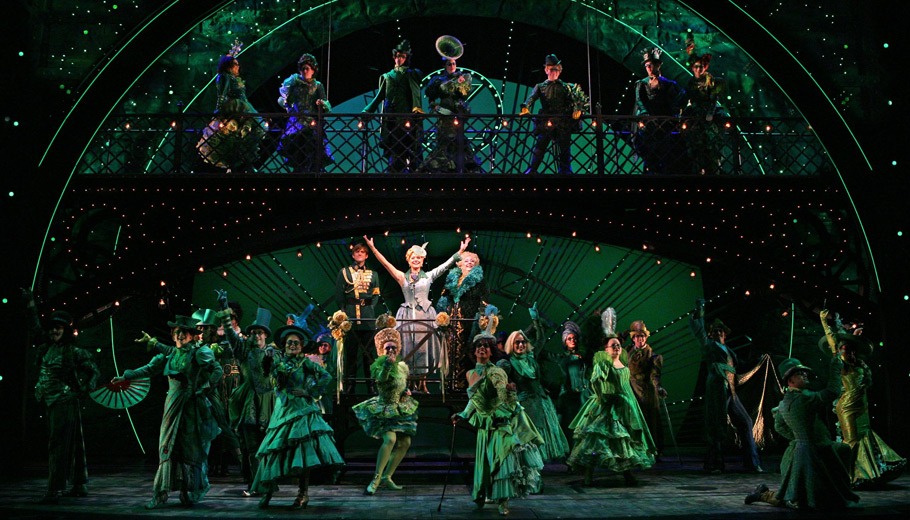
With a career as composer and lyricist that spans more than four decades, and a mantelpiece that boasts three Oscars and three Grammys, Stephen Schwartz has cemented his place on Broadway and in Hollywood.
You may not know his name, but you know his work. His stage hits include Godspell, Pippin and Wicked, while his movie songs can be heard in such animated features as Pocahontas, Hunchback of Notre Dame and The Prince of Egypt. On Saturday, Nov. 12, Schwartz brings his musical journey through his song trunk — He’s Got Magic to Do — to the Maltz Jupiter Theatre, a fundraiser for the area’s prominent not-for-profit regional playhouse.
Still running on Broadway after 13 years, Wicked, a prequel to The Wizard of Oz told from the witches’ viewpoint, has meant that Schwartz never has to work another day. Yet at 68, he is busier than he ever has been.
“Well, yes, that’s true,” he concedes. “Particularly because of ‘Wicked,’ but also some other projects, I have the privilege and the luxury of being able to work on the things that I want to and that I’m interested in doing. Out of passion and enthusiasm and not out of necessity.”
Schwartz was commercially successful from the age of 20, hitting it big right out of Carnegie Mellon University with a playful musical on the life and teachings of Jesus Christ, Godspell. “Even when I started, if you had a really big hit show it puts you in fairly comfortable economic circumstances,” he says. “The nice thing about shows is that after their initial run is done they continue to have a life in stock and amateur productions. The checks keep coming.”
But what was a nice Jewish boy from New York City doing writing a show about Jesus?
“Well, I have two things to say about that. First of all, it was not a project that began with me. It was the brainchild of its original director and conceiver, John-Michael Tebelak,” notes Schwartz. “I was asked to join the project, to provide a score for it fairly well along the way of its development.
“That being said, to me ‘Godspell’ is much more about the philosophy behind the teachings of Jesus than it is dealing with the divinity. In fact, it doesn’t deal with that at all,” he says. “Y’know, for 2,000 years this material had existed and no one before had actually realized that it could be funny. ‘Godspell’ is actually a direct rendering of the philosophy and text, but in a way that is very amusing without it being satirical.”
Godspell attracted the attention of the great Leonard Bernstein, who asked Schwartz to work with him on the English text to his Mass, the oratorio that opened the Kennedy Center in 1971. “It was intimidating, obviously,” concedes Schwartz. “I had grown up, needless to say, with Leonard Bernstein on my television, on my radio and on my record player. It was an amazing opportunity for me to get to work with him and I learned an enormous amount. Just being around him and absorbing his approach to music and to work, and how he dealt with other people, etc., was really inspiring and informative to me. He remains the closest thing that I ever had to a mentor.”

The next year, Schwartz was back at the Kennedy Center, trying out a new musical that he had started writing in college – Pippin, an anachronistic history of the son of King Charlemagne. The show, which would run almost five years on Broadway, had an unusually combative birth. At one point, its brilliant-but-difficult director-choreographer Bob Fosse had Schwartz banned from the rehearsals of his own show.
“Um, you know what? That’s probably true, though I don’t remember it,” says Schwartz today. “It was pretty contentious. Bob was not a very easy guy for writers to get along with. Another writer with whom he worked several times famously and surprisingly referred to him to me as ‘the anti-Christ.’ It became comforting to me to learn subsequently that actually nobody got along with Bob. It wasn’t just me. That being said, I was 24 years old. I didn’t really have any experience in collaboration with difficult personalities. I feel I would have handled that much, much better now, obviously.”
In retrospect, Schwartz realizes what a gift Fosse gave him, transforming the material into a cohesive, iconic show. “And what’s ironic is as the years have gone by and revivals of ‘Pippin’have come up, including the recent one, which I loved, I’ve become more and more protective of Bob’s contributions and his vision,” says Schwartz. “I say that somewhere Bob is looking up and laughing.”
Pippin had never returned to Broadway until three years ago, when another visionary director, American Repertory Theatre’s Diane Paulus, also put her stamp on the show, setting it inside a circus tent. Was Schwartz worried that his show would be stolen away from him again?
“Well, I really didn’t understand exactly what Diane meant at first with the circus idea, but I knew Diane and I liked her very much,” he says in retrospect. “We had some experience dealing with one another, although not collaborating on a project directly.
“Then, as I began to see what she had in mind, she and I and Roget Hirson, the book writer, collaborated on the material, and I felt better and better about it. And I wound up just loving the production,” the Tony-winning Best Revival of 2013.
Although it was edged out of the Best Musical Tony Award in 2003 by Avenue Q, Wicked is Schwartz’s most lucrative, longest-running show. More than any of his works, it has captured something that audiences all over the world have responded to. But what is that?
“Well, of course, all of us involved with the show have asked ourselves that. Every time you do a show, you set out to do it as well as you possibly can and you hope to have a hit. Sometimes that works and sometimes it doesn’t. But every now and then, a show sort of transcends just being a hit show and it becomes a cultural phenomenon,” he says. “We’re seeing that with ‘Hamilton’ right now. It happened for ‘Godspell’ when it first opened, and now it’s happened for ‘Wicked’ as well.
“So we’ve tried to analyze that a little bit. First of all, there’s the theme of the outsider and as our producer David Stone says, ‘All of us have that green girl inside us.’ I think that appealed, I think the relationship between the two women, it was sort of the right time to tell that sort of story. I think that struck a chord right now in the zeitgeist.”

Whatever the reasons, Wicked is soon to be – as they say – a major motion picture. Universal Pictures has already announced that it will open on Dec. 20, 2019. Schwartz has his doubts.
“Yeah, well, don’t hold your breath,” he scoffs. “I don’t know that that date is realistic, but we are beginning work. We have sort of a whole outline or scenario that Winnie (Holzman) and I have been working on with Stephen Daldry, our director. We have a pretty good idea of the big picture. It needs to be re-conceived as a movie, but that’s exciting and fun.” Expect the movie to have some new songs, which Schwartz has places for in the story, but he hasn’t written them yet.
In recent years, Schwartz has begun exploring the world of opera, first writing an adaptation of the 1964 film drama Séance on a Wet Afternoon, which receives productions at opera companies around the country, and recently a musical-opera hybrid Schikaneder, about the librettist of Mozart’s The Magic Flute, which premiered to acclaim recently in Vienna.
Nevertheless, Schwartz has his doubts about the prospects of Schikaneder in this country. “For it to be done as a commercial show would be really compromising the orchestra,” he says. “You can’t do a show with 35 musicians. Not in real life.”
His next stage project is likely to be The Prince of Egypt, an adaptation of the 1998 animated retelling of the Exodus saga, but Schwartz is unsure of where the show is headed. “It’s a big show. In fact, oddly enough, it may be too big to be a Broadway show, which is sort of what happened with ‘Hunchback of Notre Dame.’” Still, he adds, “I’m not ruling anything out. My job is to write the show with my collaborators, as well as I possibly can. Other people then make the determination what they then do with it.”
He is certain, however, where he will be on Saturday, Nov. 12 – entertaining the Maltz audience. Describing the evening, he says, “It’s not a standard parade of ‘and-then-I-wrote,’ although obviously we try and do things that people are expecting to hear. If they know any of my work, there’ll be a lot of surprises I think, some mash-ups and some less known things. Our audiences usually seem to be pretty happy with it.”
HE’S GOT MAGIC TO DO: THE SONGS OF STEPHEN SCHWARTZ, Maltz Jupiter Theatre, 1001 E. Indiantown Road, Jupiter. Saturday, Nov. 12, at 8 p.m. $50-$100. Call: (561) 575-2333.